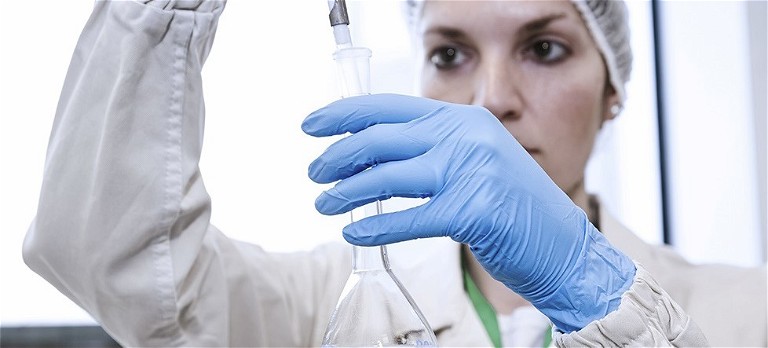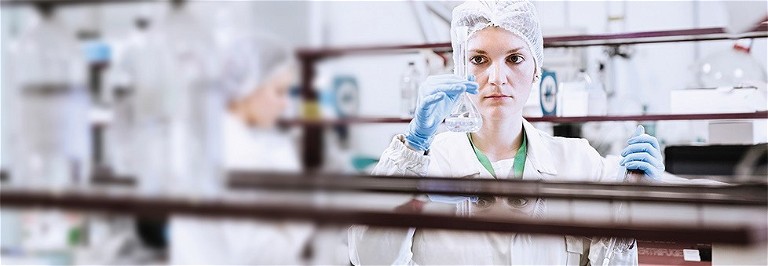Industry Insight
Paediatrics in the review of the EU General Pharmaceutical Legislation

Pauline Roudot from Novartis considers the the potential future regulatory frameworks around paediatric drug development
In April 2023, the European Commission (EC) published its legislative proposal for the review of the General Pharmaceutical Legislation (GPL), which included a revision of the paediatric regulation.
Currently there is dedicated paediatric legislation in the European Union (EU). It has been in force since 2007 and has been tremendously successful in shifting the paradigm, integrating paediatric development into drug development. In the current EC proposal, the paediatric provisions are embedded into the GPL, reflecting its status as an integrated part of drug development.
Innovative pharmaceutical companies welcome the proposal for the ‘initial PIP’ – a high-level clinical development plan that will be completed in a step-by-step approach during development as data is generated. This model, strongly based on science, should facilitate a better integration of paediatric development into product development, and foster a more efficient regulatory pathway to agreement and completion of paediatric programmes.
The proposal to adapt the format and content for PIP applications for products intended to be developed only for use in children will alleviate the procedural burden for applicants that develop novel medicines for paediatric diseases. This approach should streamline regulatory interactions for paediatric medicines development, facilitating paediatric patient access to new medicines.
The new proposed EMA structure and transition of the paediatric committee (PDCO) from a committee to a working party has also been broadly welcomed. This is an opportunity to streamline the EU regulatory framework for paediatric medicines and this new structure will substantially reduce duplication and minimise the risk for misalignment between committees. The paediatric expertise that was built over the years will be retained within the new working party structure that will serve as an expert consulting body to the Committee for Medicinal Products for Human Use (CHMP).

There is a misperception that delays in paediatric authorisations are due to late submission of PIPs or the granting of deferrals. This does not reflect the experience of many pharma companies. Paediatric research is complex, often inhibited by lack of foundational science, lack of available or age-relevant endpoints, in addition to the small size of available research populations. These complexities routinely result in research that requires more time to conduct and with slow recruitment. PDCO/EMA require PIP deferrals to be based on strong scientific justification or grounds related to public health. It is concerning that the EC is proposing to limit the length of deferrals to five years and to restrict potential prolongations. Arbitrary time limits in the absence of relevant scientific justification cannot speed up development, especially for paediatric programmes that rely on generation of adult data, or if the population is rare. This proposal seems to go against the objective of reducing the regulatory burden and streamlining the regulatory procedures as we expect that numerous PIPs will require procedures to extend the arbitrarily established deferral timelines.
The EC is proposing to evolve the role of Enpr-EMA (a network of research networks, investigators and centres with recognised expertise in performing clinical studies in children, promoting research into medicines for children and enabling collaboration with members, including academia and the pharmaceutical industry) into a network that shall “discuss priorities in the clinical development of medicines for children, in particular in areas of unmet medical need, to coordinate studies relating to paediatric medicinal products, to build up the necessary scientific and administrative competences at European level, and to avoid unnecessary duplication of studies and testing in the paediatric population.” This third-party interference in asset and pipeline decision-making is highly concerning. For paediatric product priorities to be adequately ascertained in an efficient manner it will require early data sharing, which will jeopardise company confidential information. At present, no suitable infrastructure to support this scope of work while ensuring protection of company confidential information exists.

In the current framework, sponsors can be granted a PIP waiver on the grounds that a disease occurs only in adults. In the proposed legislation sponsors will be required to develop medicines for children if, based on a product’s mechanism of action (MoA), the compound could be effective against a different paediatric disease. These PIPs based on the MoA (MoA PIPs) are aligned with the industry’s attempt to re-imagine therapies to address unmet medical needs across populations, specifically in rare paediatric diseases. However, framing the MoA PIP approach appropriately is essential to ensure it delivers on its intended purpose to bring more medicines to children. The availability of relevant mechanistic and foundational science is a key factor that influences a pharmaceutical company’s decision to invest in R&D. Reliable and reproducible data is needed to support the development of a product in a condition. That is why:
- An MoA PIP should be grounded on sound basic and translational science and not on an assumption that the MoA could work in a disease
- If MoA PIPs are based on assumptions, there is a high risk that the required research conducted under a PIP will not lead to a paediatric indication
- There is a need to reduce the risk for failure in the vulnerable paediatric population and not enrol children in clinical trials that will not deliver real benefit for this population, especially considering existing high failure rates of investigational medicines during early drug development
- There is a need to ensure that there is enough robust scientific data to support the clinical development of the compound in a paediatric indication, we enhance the chance of delivering new medicines to paediatric patients.
There is a need for therapies to be accessible to all patients who need them. However, the proposed enlarged obligation to place paediatric products on the market would compel companies to implement a full conventional launch (ie, seeking pricing and reimbursement for each country for the new paediatric indication or formulation and launching it on every market in local pack) in all member states where the adult product is on the market.
The number of patients diagnosed with paediatric diseases is often small – in some countries there may be no demand at all for certain products – leading to low usage and potentially many write-offs. While well intended, this legal provision may actually result in a delay to paediatric access where it is most needed, as a consequence of the significant supply and pricing and reimbursement challenges of launching products for rare paediatric diseases in all EU markets.

Stricter obligations to place the product in every market will have limited added value for patients and will introduce a disproportionate business impact across the Union market. Introducing regulatory flexibilities would be a more meaningful and efficient approach for paediatric patients, prescribing clinicians and the industry (eg, centralised supply to source the product in a common package in one language with e-leaflets in all languages available digitally). There are more agile ways to achieve the same aim of making paediatric medicines available – one which reflects actual patient needs and demand across the EU–by making the product available to patients and the prescribing doctors who requested it. To support access to medicinal products, in particular in the case of rare paediatric diseases, paths of making medicinal products available to patients and prescribing doctors need to be considered. These include named patient supply, post-authorisation compassionate use programmes and other cross-border healthcare provisions.
The revision of the GPL has the potential to bring some simplification but also tremendous complexity and challenges. This is why it is of the utmost importance to have it carefully framed. Once adopted, the pharma industry is looking forward to working with other stakeholders on a seamless and workable implementation to meet the objectives of this legislative revision and address the needs of children in the EU.

Pauline Roudot, currently serving as director of Regulatory Policy and Intelligence at Novartis, has over 12 years of dedicated experience in Regulatory Affairs. Her journey with Novartis began in December 2012 when she assumed the role of global programme regulatory manager where she was focusing on primary care and respiratory products. She later transitioned to the role of the regulatory intelligence manager. Additionally, her expertise led her to work with the European Federation of Pharmaceutical Industries and Associations (EFPIA), where she served as an associate director on secondment from January 2021 to June 2022. Pauline holds a Doctor of Pharmacy (PharmD) degree from Strasbourg University's Faculty of Pharmacy, France, complemented by a master’s degree in EU legislation and pharmaceutical regulations from the same institution, both completed in 2011.